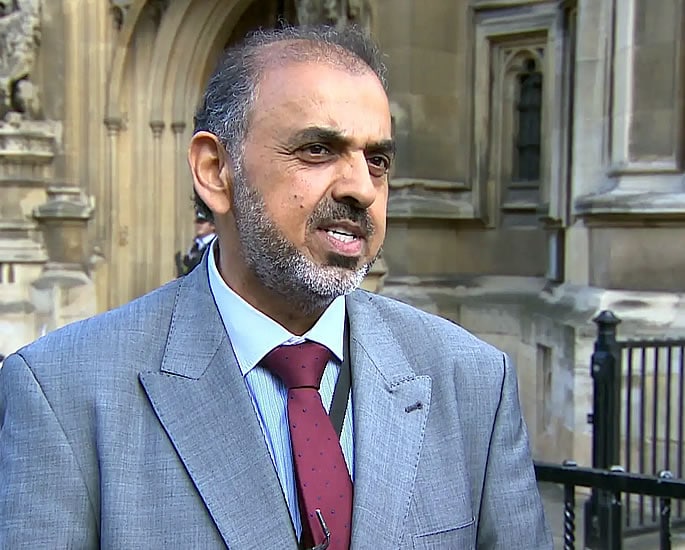"I was looking for help and he took advantage of me."
Lord Nazir Ahmed of Rotherham has denied claims he exploited his position to have a sexual relationship with vulnerable women, including the mayor of Rochdale’s daughter.
He allegedly had an affair with Tahira Zaman, aged 41, while she was suffering from depression and anxiety.
Lord Ahmed, aged 61, denies acting inappropriately. However, her case has raised questions about the adequacy of the House of Lords Code of Conduct.
Ms Zaman, daughter of the current mayor of Rochdale Council Mohammed Zaman, alleges the affair began in 2017.
She asked Lord Ahmed to get the police to investigate a faith healer in 2017 who she felt was a danger to women.
After acting on her request, Lord Ahmed allegedly asked Ms Zaman out for dinner several times.
Ms Zaman eventually agreed and weeks after the dinner, she contacted him about her case and he invited her to his east London home.
Ms Zaman said: “He was saying I’m beautiful.”
According to Tahira, the pair went on to have sex on numerous occasions.

The relationship ended after two months when Lord Ahmed told her he would not leave his wife.
Tahira said: “I genuinely did believe that he had feelings for me, I’m just so stupid and I believed that he was going to help me.”
Ms Zaman said she felt exploited by Lord Ahmed as she was suffering from depression. She accepted the relationship was consensual.
However, she said: “I was looking for help and he took advantage of me. He abused his power.”
In January 2018, Ms Zaman made a complaint about Lord Ahmed’s behaviour to the Lords’ Commissioner for Standards, Lucy Scott-Moncrieff.
She told the commissioner: “Lord Ahmed used my trust to repeatedly have intercourse with me.
“I feel I have been preyed upon due to my vulnerability and used by Lord Ahmed.”
After reviewing her complaint twice, Ms Scott-Moncrieff decided not to take further action. She concluded the code could not have been broken when Lord Ahmed wrote to the police as it was not part of his parliamentary work.
She said: “Though credible and substantial, the complaint provided insufficient evidence that contact with the member was in relation to his parliamentary duties.
“To conclude otherwise is to misunderstand the code.”
In another case, an anonymous woman alleges that she had also asked Lord Ahmed for help.

She claimed he suggested she should spend the night at his home.
The woman refused as she interpreted this as a proposition for sex.
Lord Ahmed denied the allegations and said:
“I completely deny the allegation that I have exploited my position to pursue an inappropriate relationship with any member of the public (vulnerable or otherwise) or that I have acted inappropriately in the presence of women either in my personal or professional capacity.”
While the complaint has been rejected, barrister and former deputy high court judge Lord Carlile has said the rules should be clarified.
He said: “If someone comes to you for help, particularly if they’re vulnerable… and you form a sexual relationship, actually that’s disgraceful.”
Lord Carlile stated that a sexual relationship between Lord Ahmed and Ms Zaman could breach two clauses. One covering conflicts of interest and another which stipulates that Lords must behave on “their personal honour”.
He added: “If it is not clear to the commissioner, who is a very experienced lawyer, then I think the rules need to be clarified and in particular the guide to the code of conduct needs to be clarified.”
Lord Ahmed concluded: “I take my duties as a Parliamentarian extremely seriously and would not act so as to undermine my personal or professional reputation.”





























































